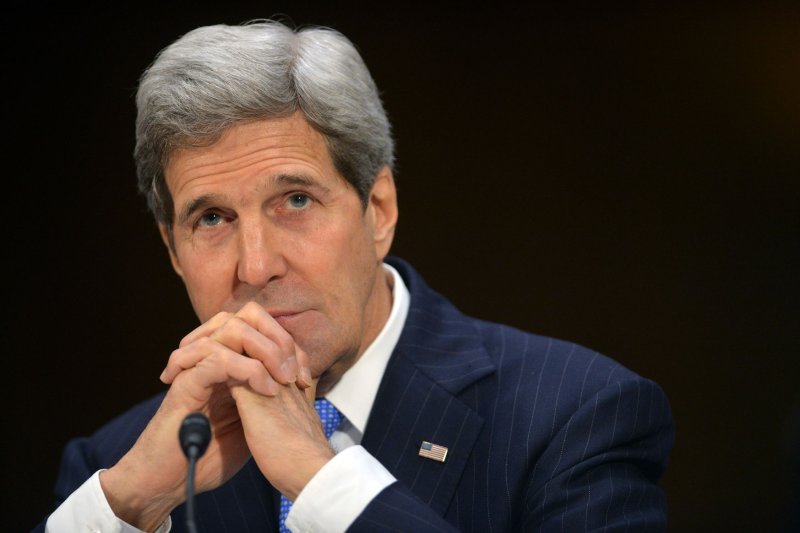WASHINGTON, April 17 (UPI) -- U.S. Secretary of State John Kerry lauded a congressional measure to open international trade doors, though opponents said the measure puts the climate at risk.
Senate Finance Committee Chairman Orrin Hatch, R-Utah, ranking member Ron Wyden, D-Ore., and House Ways and Means Chairman Paul Ryan, R-Wis., introduced legislation that would fast-track trade agreements with overseas partners.















